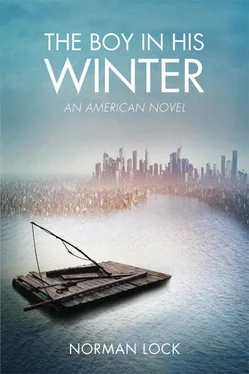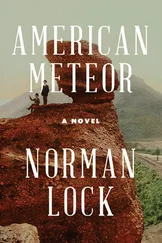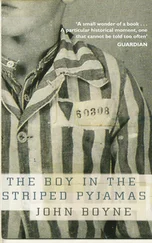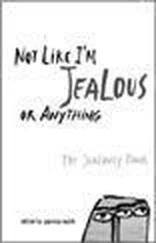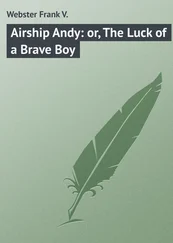In the 1830s, I might have joined a band of roughnecks to smuggle Caribbean rum or slaves into the Missouri Territory. (The word trafficking was unknown.) I’d have done it for fun and so would Tom Sawyer; we were the product of our time and saw no harm in strong drink or in the ownership of other human beings. You’d be wrong to judge the boy I was then by the standards of the present age — and this you should know, too: I wasn’t the innocent people have made me out to be. That’s Twain’s doing: His Huckleberry Finn might have had a kernel of goodness. People say so. But I’d have been embarrassed to think I had a spark of decency. No boy wants to be thought of as good. The world and especially girls find bad boys attractive. Don’t they? Oh, it was a very long time ago, but I’m sure I was a devilish child, thoughtless, and casually cruel. A boy, as is often said with a smile, who liked to pull the wings off flies or hang up cats by their tails. Such a boy is hardly good and, in all likelihood, will turn out mean.
I don’t wish to belabor this, but before we begin the second part of my history, I want you, at least, to understand how it was for me when I got blown into time by Katrina. Maybe I am trying to understand myself. Before this, I’ve taken up such thoughts like a tangle of dirty string; but I never tried to untangle it. Look, I’m just as divided as the next one; but my case is unusual, except among lunatics. Don’t you think? God, I wish Jim were here! He’d know what was troubling me. He was a slave, and I tormented him and loved him. Jim was no fool. He loved me, and I’m equally sure he hated me. That’s what it means to be human. I wonder if he hadn’t been lynched, what he would have become. The first black president of the United States, perhaps. Let’s leave it at this: I was no better than any other boy and not so bad a man as I might have been for the times. Think what you damn well please!
You can see for yourself I haven’t long to live. Ha! I don’t hear you arguing the point. I am eighty-five years old, various organs of mine are in revolt, and I am almost tired of this life. I wonder what the next one will be like.
Yes, I believe in an afterlife — in dwelling, at least for a while, in timelessness, which may not be the same thing as eternity. With my history, how could I believe otherwise?
IF I FEARED THE CLOTHES, SHOES, AND SOCKS I’d found in the crate because they might be part of an insidious design whose purpose was my enslavement, I put them on anyway. My pants were wet, my shirt a rag; the shoes had gone overboard when the raft capsized. It may have been August in Louisiana, but I shivered with cold. The hurricane had sown wreckage on the ground, dangerous for even a boy used to going barefoot. I walked through the remains of a cannery to the riverbank and headed toward the Gulf. I hadn’t a destination in mind. I was looking for someone who might give me food and fresh water. I sensed that to walk northwesterly along the Great River Road to New Orleans was not for me: To return to a point in space I’d gone by on the raft would mean going back in time, impossible for someone no longer outside it.
Nothing moved except dirty wavelets of exhausted river water, a few listless birds, branches of the cypress trees, fitfully, and — strange and sad — two flat-bottomed rowboats on the flooded grass, which made me think of the Venice I’d seen in one of Judge Thatcher’s books. But in these boats, no gondoliers sang barcaroles to lovers stunned by moonlight. I was alone with a graveyard of partially tumbled stones, a stove-in pier, dead fish on their way to corruption at my feet. I took a boat and, with a piece of board found in the flotsam to serve as rudder, pushed out onto the river and floated twenty miles to Port Eads, at the end of the Mississippi. Of that final leg of my journey on the father of waters, I remember how the river leafed greenly with fallen branches above its rushing mud, like Birnam Wood moving toward Dunsinane.
There was nothing magical about this brief trip downriver. I was finished with magic, and magic finished with me. I was alive and growing; I could feel my cells divide, my hair and nails minutely lengthen. I was acutely aware of the sensation of being alive in the world and in time — a novelty I experienced in a way no infant could. The feeling soon passed, and life became ordinary. The river pushed — or say, instead, the river upheld me while I steered, because I was in control. (I have to believe that this was so!) In time, I arrived at Port Eads, with its lighthouse and fishing camp, both of which had survived; and, just beyond the broken piers, the Gulf of Mexico shimmered like the dream it was.
THE CONNERY BROTHERS, EDGAR AND EDMUND, were cooking a chicken over a fire in an oil drum that had been cut in two when I walked out of the tall salt grass. Attracted by the smell, I was too hungry for caution. Time had restored to me the appetites, present or potential. Startled, Edmund drew a pistol from his belt and fired. I’d have been shot dead if Edgar hadn’t knocked his brother’s arm to spoil his aim. The bullet struck a mangrove tree. The report alarmed the birds, which rose up as one, like a congregation rising in unison at the sharp crack of kneeling benches striking the floor. (Have you never thought about the collective consciousness of gregarious things that fly, swim, or crawl?) I hadn’t flinched. I stood my ground — a wild, grimy boy whose eyes, I was told later, looked overcast by a somber, unsettling emotion strange in a child. I think they were only wide and unfocused, as they will be when coming out of sunlight into gloom.
They did not know what to make of me. Edmund tucked his pistol into his belt and stared dumbly, the way one would at a monstrous thing, amphibious and scaled, that had crawled on all fours from the fetid mangrove swamp. I was a dirty, ragged boy. I listened to the swamp breathe and, sweeter, the Gulf seethe and settle. I wished Jim could see it, blue and vast. Neither of us had laid eyes, remember, on any water not bound by two mud flanks and brown with particles of dirt. Endued with sympathies his brother lacked, Edgar nodded for me to sit on a log near the burning drum.
“You look starved, boy,” he said.
“I am, sir.”
“We’ve got a chicken — the last one left at ‘the end of the world.’ Edmund pulled it out of a tree, where it’d gone to roost before the storm. A miracle chicken! Seemed a shame to kill it, but we’re hungry.”
“Not enough meat to split three ways,” Edmund grumbled. He looked at me as you might at a rabid dog.
“Can’t let the boy starve!” Edgar snapped.
I blessed him for his defense of helpless orphans and would have signed on, then and there, to any scheme he might propose, regardless of danger or legality. What did I know of either, really? In Hannibal, Tom and I had risked a beating for sneaking into a tent show or a steamboat minstrelsy. We’d pretended to be cutthroats and dreamed of glorious deaths, funerals, and resurrections. By an accidental escape from the universal fate of humankind, I’d been spared — provisionally — Tom’s end and also that of Jim, who had grown a conscience and perished for it. My years had been charmed, but were no longer so.
With a brand-new barlow knife, Edgar cut off a chicken leg and set it on a plate for me.
“I’m afraid we’ve only beer to drink,” he said.
I accepted the beer — the first I’d ever drunk — and would sing odes to hops, in my mind, forever afterward.
“He likes it, Edmund!” Edgar said, amused by my wrinkling nose.
Edmund was not amused. I knew he wished the bullet had planted itself in my chest instead of a tree trunk. Look, I’m only guessing at how this scene and dialogue went. It happened seventy-two years ago. I’ve got the mind of an old man who likes to remember what never happened and to forget what did. Don’t think for a moment none of this is true! I swear it is. But seventy-some years is a long time, and I was a writer, of sorts, fond of embroidery.
Читать дальше
